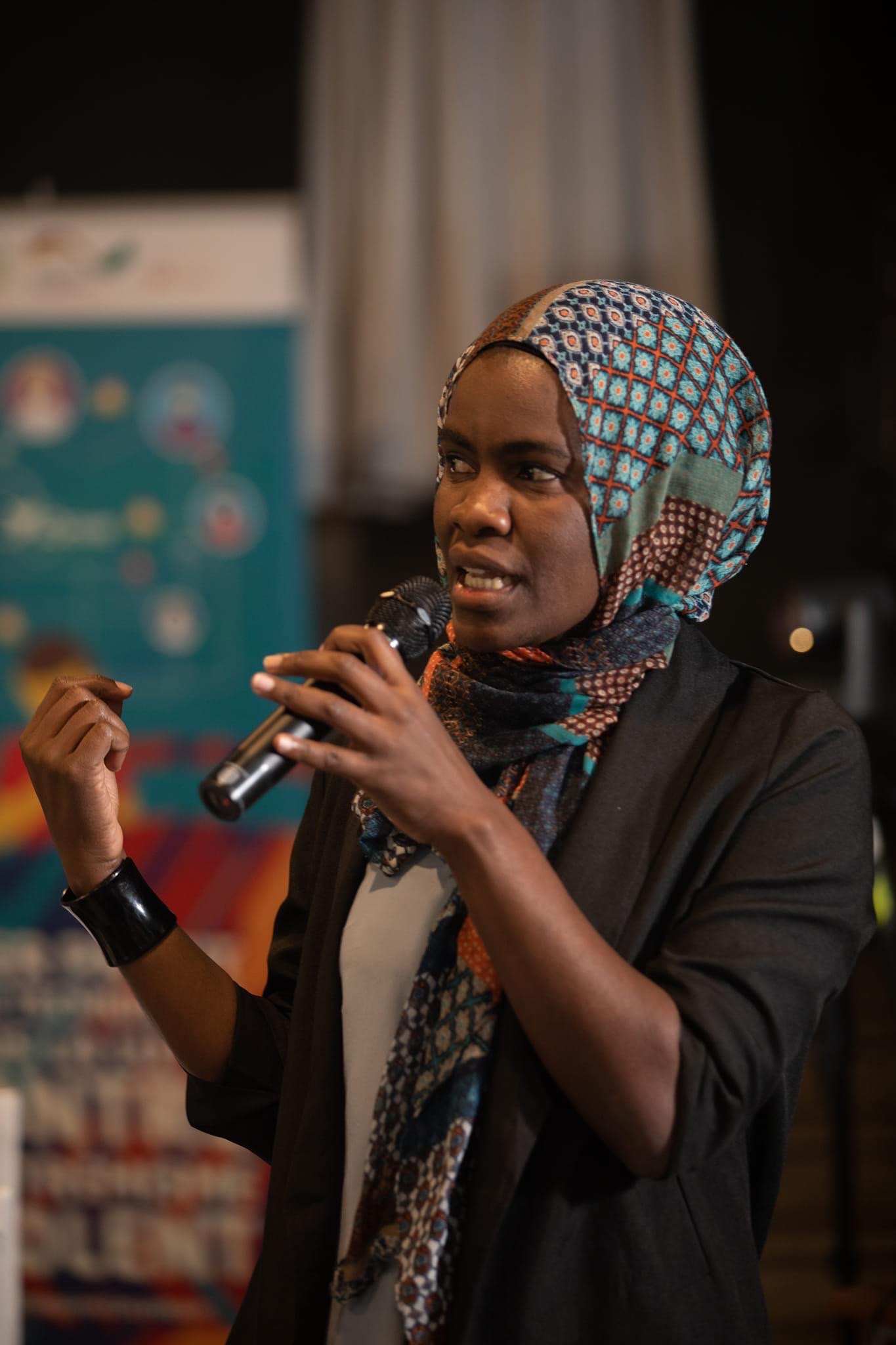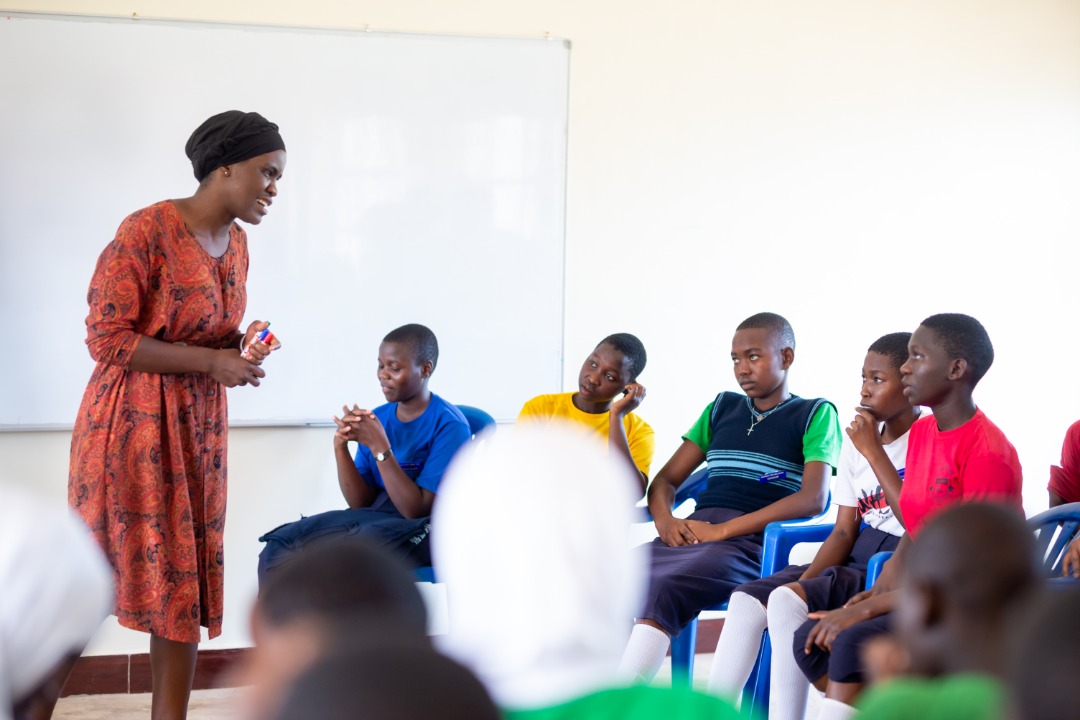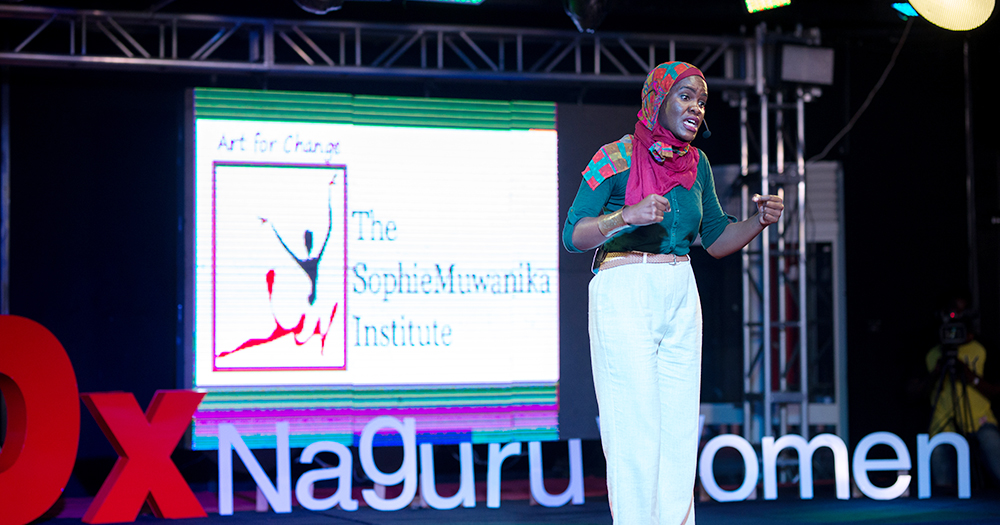A few years ago, Rashida Namulondo Muwanika went through a life-defining moment that exposed her to a damning reality. Pain and grief are not widely embraced in society. This realization has since changed the way the award-winning Ugandan theatre director, poet, actress and peace activist uses performing arts to engage with society.
“In 2015, I lost my mother. I was posting about my grief publicly on my social media platforms. I got a lot of replies, with people telling me, to get over myself and it occurred to me that people were afraid of talking about sadness or pain.”
She turned to performing art for comfort. “I realized that when I ran back to my poetry, or when I wrote a show or produced work about what I was going through, it helped me cope.” This experience made her realize art is a powerful tool that she could use to help others deal with grief and trauma.

“I was bullied into silence so I didn’t want any other person who is depressed, to be bullied into silence, and that’s why I started the institute. We do a lot of work around therapy, trauma healing and forgiveness. We believe a peaceful soul will give back peace in a community.”
Launched in 2016 in memory of her late mother, the Sophie Muwanika Institute, is a non-profit organization that uses theater for peacebuilding and offers a platform for young people like adolescents and teenagers to have open conversations on depression and mental health through its different programs. The institute also provides therapy and healing for trauma victims, such as victims of war, and gender-based violence.
“We believe performing arts and theatre is a tool that can help people to heal, explore how they feel, who they are and show up in communities as peaceful individuals. And that hopefully would have built a whole community of peace because if you are peaceful then you can share that peace with somebody else and you will not want to be negative, neither will you want to pick fights”.
The Institute has so far lived up to its objectives with over 300 beneficiaries both directly and indirectly. In recognition of her work, Rashida was named a 2016 Laurette Global fellow, a One Young World Peace Ambassador in 2017, among others. However, she says the greatest achievement for her has been seeing the impact the institute has created. “We have several young people that have been a part of our programs decide to do work in social service, some are psychologists and nurses. It is great to see that circle of service back into the community.”

Rashida recently completed a three months residence with the Tebere Arts Foundation where she got to write her first play that she is set to produce. “The play talks about mental health issues in men this time around. I feel they are not given enough attention, so I am excited to see where that goes and how many conversations it will open up.”
“What I love about what I do is that there’s a bit of me in everything, for example, working at the institute brings everything I am in one space and everything I believe in. I am an artist, I work and produce for theatre and I get to do that within the institute. I also love talking to people and having open conversations about weakness.”
Besides working on the creation of theatre education programs and advocating for their addition to the national curriculum across the nation, Rashida says, the institute is also looking at opening space for more artists to use their crafts to create change.
“As artists, our work provokes social issues and in Uganda, we are very intentional about occupying the space and using our work for building cohesiveness or building peace in society, so as an institute, we are reaching out to more artists to come on board.”


